iPhone 11 Pro vs. Samsung Galaxy S10: Which flagship phone should you buy?
Our iPhone 11 Pro vs Galaxy S10 mega face-off will help you decide which phone to buy
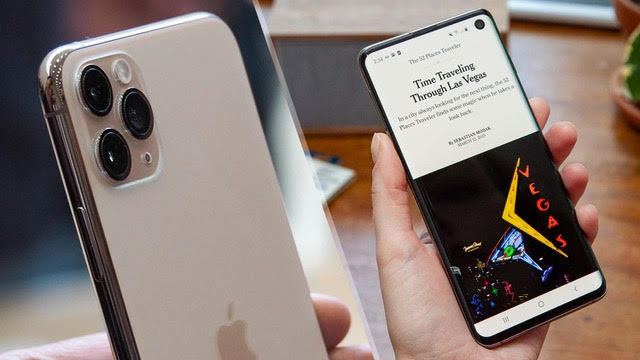
Apple's trio of flagship iPhones has put Samsung’s Galaxy S10 devices on defense, at least until the Galaxy S20 comes out. The companies’ two mid-sized options, the 5.8-inch iPhone 11 Pro and 6.1-inch Galaxy S10, may be the middle children of their respective families, but both have plenty to offer when it comes to design, display, cameras, performance and battery life.
The iPhone 11 vs. Samsung's S10 matchup is almost too close to call, but after putting the iPhone 11 Pro through its paces to see how it stacks up to the Galaxy S10, one phone outperforms the other. Here’s how the iPhone 11 Pro and Galaxy S10 stack up against one another.
iPhone 11 Pro vs. Galaxy S10: Specs compared
| Row 0 - Cell 0 | iPhone 11 Pro | Galaxy S10 |
| Starting Price | $999 | $899 |
| Screen Size (Resolution) | 5.8 inches (2436 x 1125) | 6.1 inches (3040 x 1440) |
| CPU | A13 Bionic | Qualcomm Snapdragon 855 |
| RAM | Unknown | 8GB |
| Storage | 64GB, 256GB, 512GB | 128GB, 256GB |
| microSD? | No | Yes, up to 512GB |
| Rear Cameras | 12-MP wide (f/1.8), 12-MP ultra wide (f/2.4), 12-MP telephoto (f/2.0) | 16-MP ultrawide (f/2.2), 12-MP dual-pixel wide (f/1.5, f/2.4), 12-MP telephoto (f/2.4) |
| Front Camera | 12-MP (f/2.2) | 10-MP dual-pixel (f/1.9) |
| Battery Life | 10:23 | 10:19 |
| Water Resistance Rating | IP68 | IP68 |
| Size | 5.7 x 2.8 x 0.32 inches | 5.9 x 2.77 x 0.3 inches |
| Weight | 6.63 ounces | 5.5 ounces |
| Colors | Gold, Space Gray, Silver, Midnight Green | Prism Black, Prism White, Prism Blue, Prism Green (except U.S.), Flamingo Pink (except U.K.) |
iPhone 11 Pro vs. Galaxy S10: Design and size
The iPhone 11 Pro, which measures 5.7 inches tall and 2.8 inches wide, fits more comfortably in petite hands than the 5.9-inch-tall Galaxy S10. Like other recent Apple phones, the Pro also has a notch, making its 5.8-inch display easier to navigate with one hand than the S10’s 6.1-inch screen. (More on that display in a minute.)

Size matters, but when it comes to style, Apple and Samsung have taken wildly different approaches to smartphone design. Both flagships sport triple-camera arrays on the back, but Apple grouped its telephoto, wide-angle and ultra-wide-angle lenses in a triangular formation within a square bump. The effect has polarized the internet, and even caused physical revulsion in folks with trypophobia. Samsung took a more conventional approach with its camera layout, centering its lenses in a horizontal array.
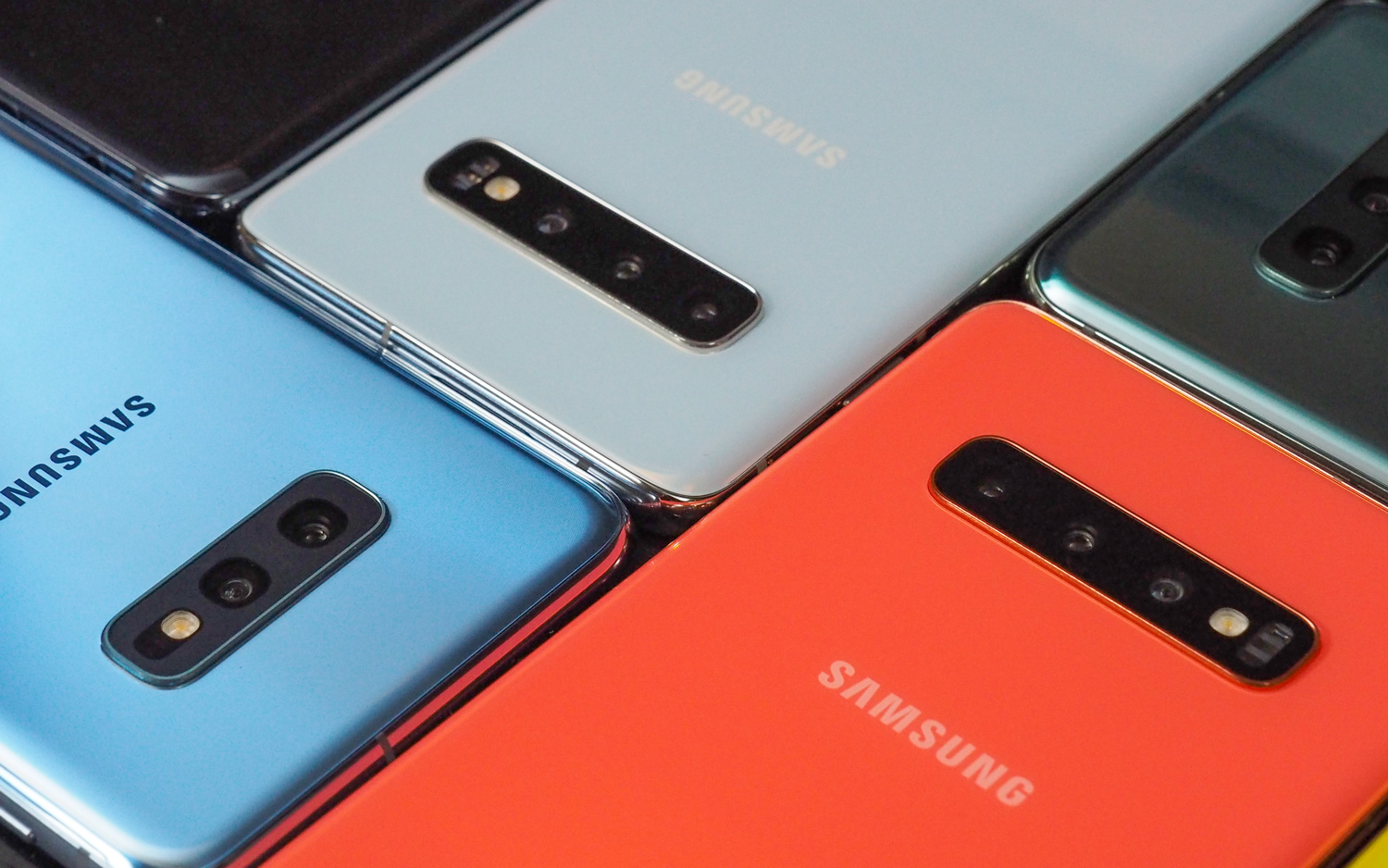
The two phones also diverge when it comes to colors. The iPhone 11 Pro has a more matte finish than the ultra-glossy Galaxy S10, which makes it more resistant to fingerprint smudges. The iPhone’s range of hues, which includes a new (for Apple) Midnight Green in addition to the classic gold, space gray and silver, are more tame than Samsung’s. The Galaxy S10 comes in an ultra-bright Flamingo Pink, prismatic white and black, and a brilliant blue. It’s definitely the flashier of the two flagships.
Which is more aesthetically pleasing? Well, that depends on your taste. And whether you’re scared of holes placed in groups of three. Sorry, trypophobes.
Winner: Tie
iPhone 11 Pro vs. Galaxy S10: Display
Apple transformed the back of its latest iPhones, but from the front, it’s business as usual. The iPhone 11 Pro’s display looks identical to the iPhone X and iPhone XS: a 5.8-inch OLED panel with a notch swooping down from the top to disguise the front-facing camera. The 2436 x 1125 screen resolution is also unchanged from the iPhone X, released in 2017.
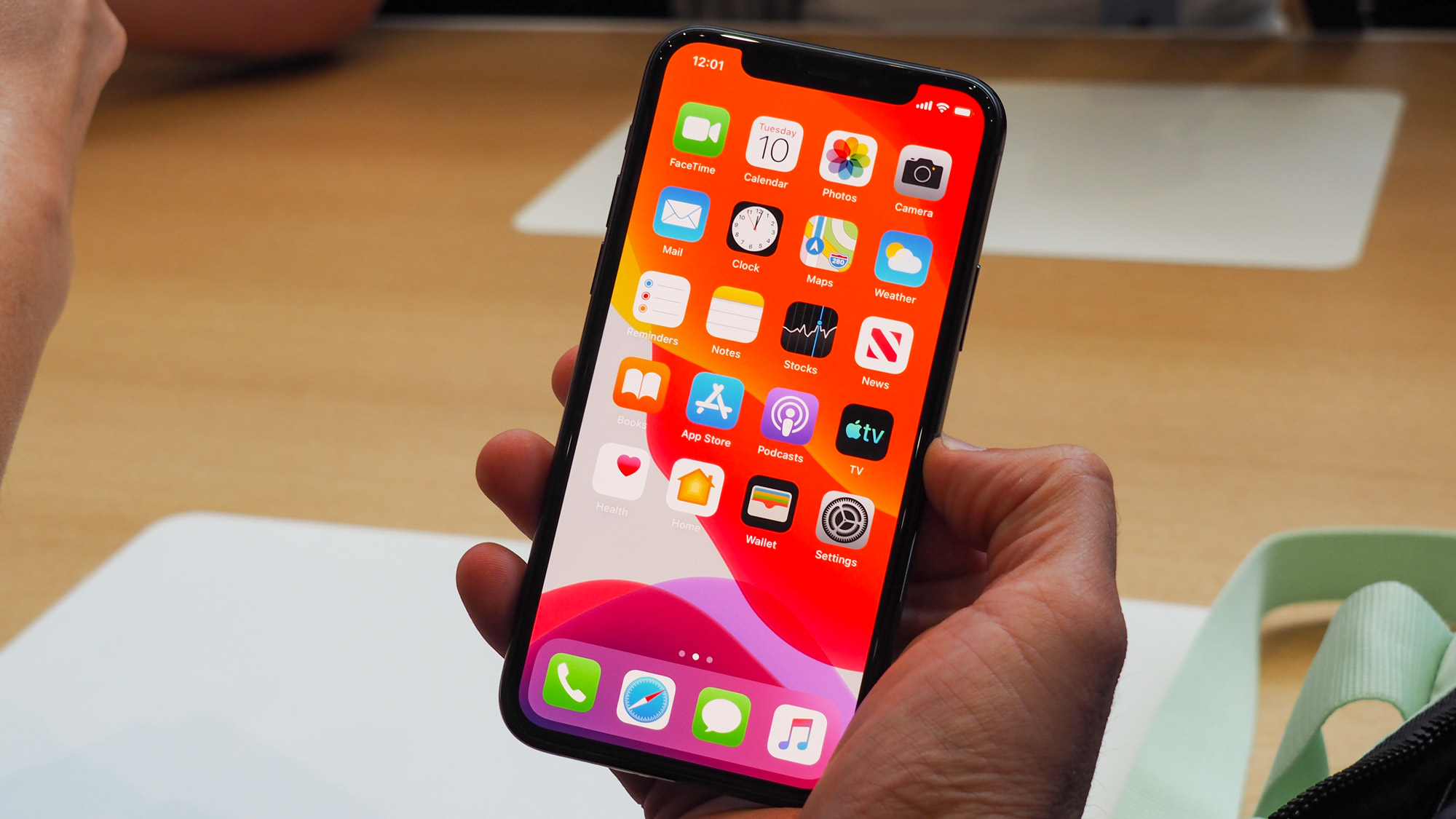
Samsung went bold with the Galaxy S10, designing what the company calls an Infinity-O display: an expansive, gorgeous, incredibly high-res (3040 x 1440), almost bezel-free screen. Samsung’s solution for the front-facing camera is a cut-out stamped directly in the OLED panel, which isn’t the most elegant solution, but leaves more room than the iPhone 11 Pro allows for videos, photos, games and web-browsing.
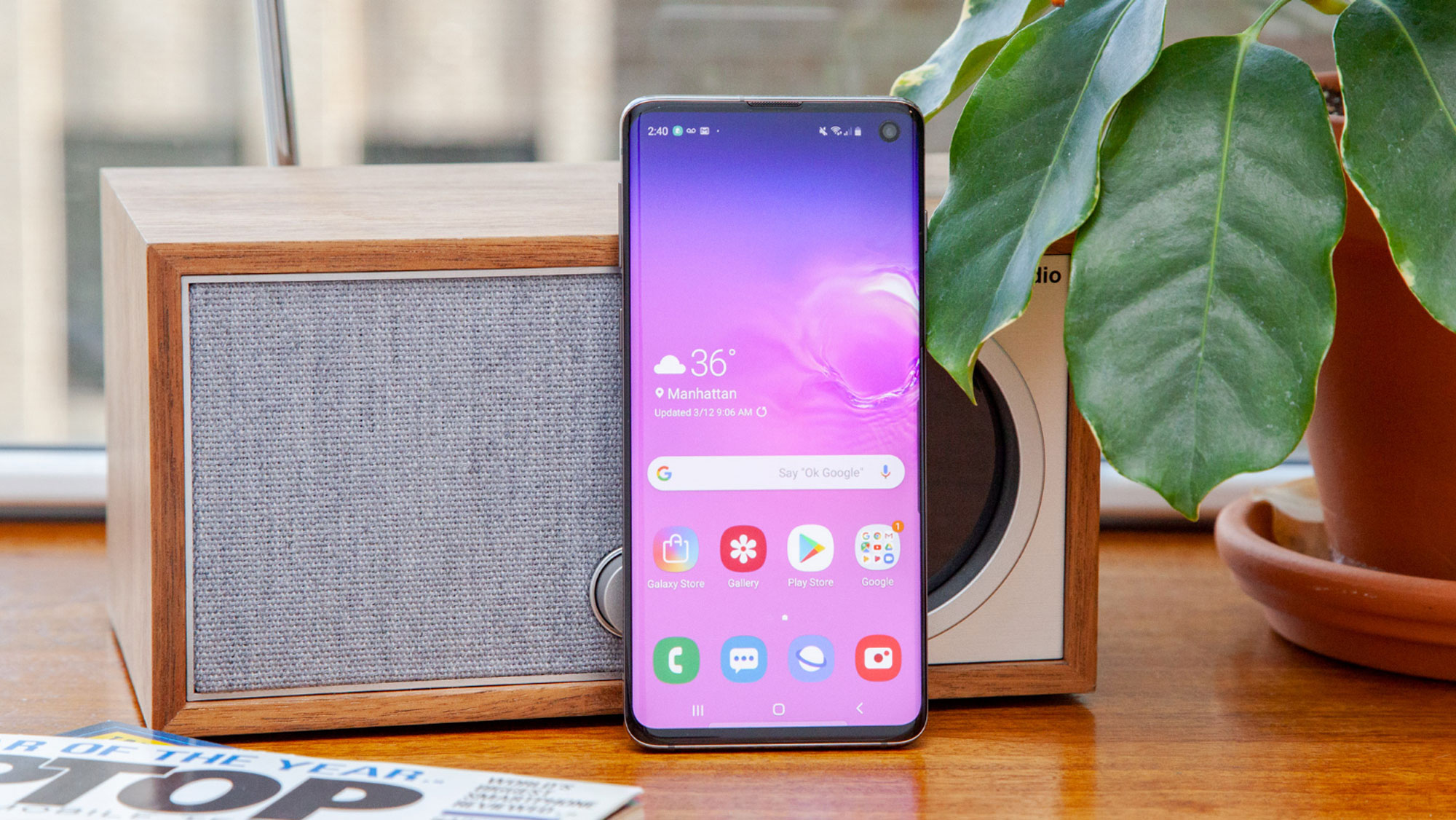
Rumor has it Apple is eyeing a display redesign for the 2020 iPhone, but this year, Samsung’s Galaxy S10 has the screen to beat, at least until we get the chance to view them side by side.
Winner: Galaxy S10
iPhone 11 Pro vs. Galaxy S10: Performance
Every year, Apple designs a more advanced processor for the iPhone. This year, it’s the A13 Bionic, which the company says delivers 20% faster CPU and GPU performance.
MORE: Best Phones of 2019
That’s bad news for Samsung. The A12 Bionic in last year’s iPhones easily outperforms the Qualcomm Snapdragon 855 chip in many of this year’s Android flagships, including the Galaxy S10. The A13 positively blows it away.
On the Geekbench 5 test of overall system performance, the iPhone 11 Pro hit a multi-core score of 3,509, better even than the Galaxy Note 10 (2,640).
Winner: iPhone 11 Pro
iPhone 11 Pro vs. Galaxy S10: Cameras
Both the iPhone and the Galaxy have a trio of rear-facing lenses: a wide, ultra-wide and telephoto lens for dynamic landscapes and detailed portraits. On paper, the S10’s lenses sound slightly more advanced, because both the wide- and ultra-wide-angle have 16 megapixels. The iPhone 11 Pro’s wide- and ultra-wide-angle lenses are 12-MP by comparison. The S10’s main lens also features a variable aperture, shifting to a wider aperture when you need to let in more light to enhance a shot.

But underneath the hood, the iPhone’s A13 processor powers a whole host of photography features that could propel it ahead of even Google’s Pixel 3. The 11 Pro’s camera has an automatic Night Mode for better low-light shots, shoots 4K video, and later this year will be able to create the best possible photo using machine learning, or what Apple calls Deep Fusion, by stitching together nine images into one.
The Galaxy S10 takes solid photos with its trio of lenses. Its 10-MP front-facing lens also takes good selfies, though the placement of the camera is a bit awkward. Samsung wanted to make thecamera’s cut-out unobtrusive by putting it to the top right of the display, so you have to retrain yourself to look up and to the right instead of directly in the center.
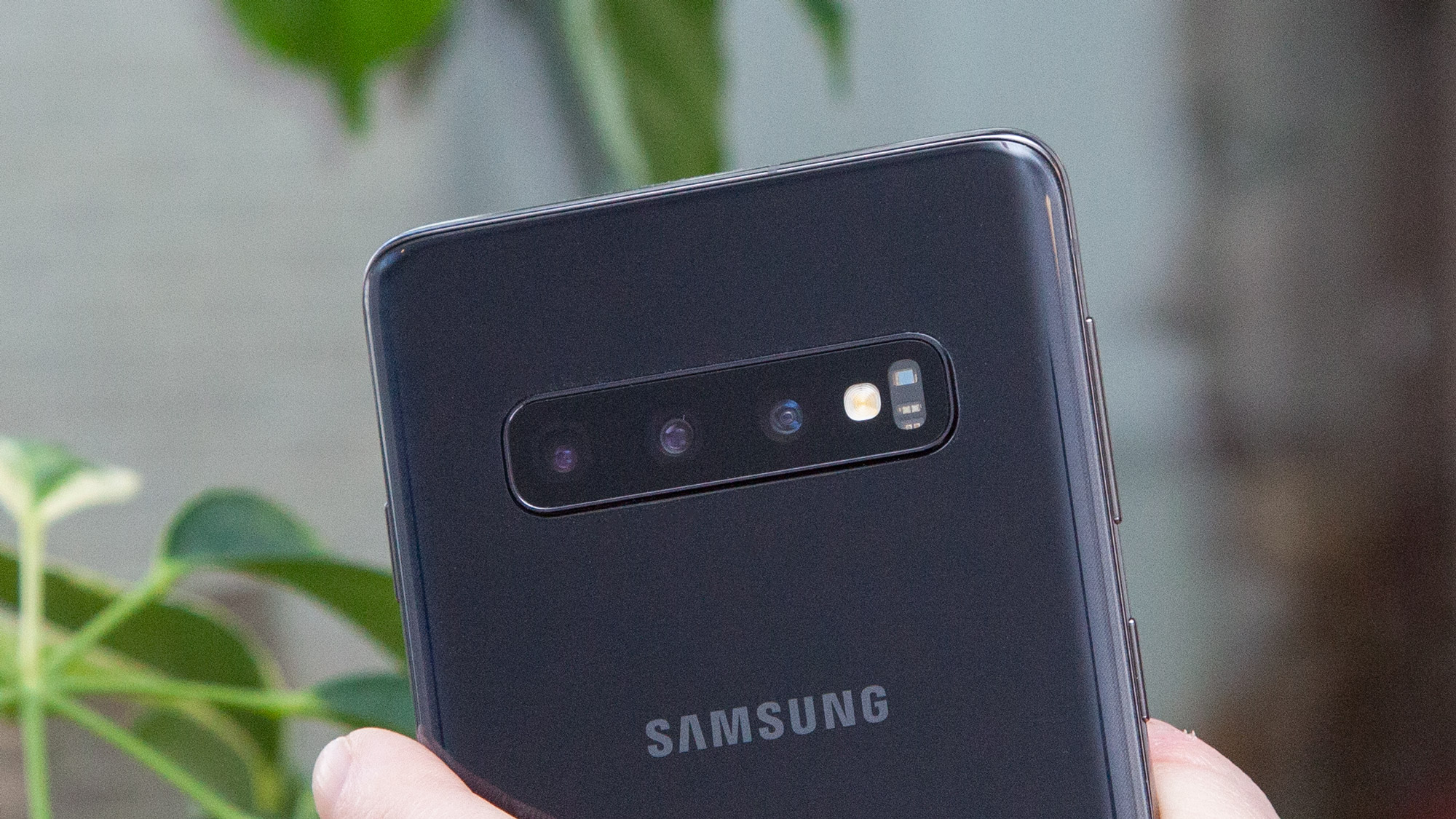
The iPhone 11 Pro’s 12-MP front-facing camera has a new trick: It shoots slow-motion front-facing videos, or what Apple calls “slofies,” which could either turn out to be a gimmick or become a go-to for Instagrammers.
The iPhone's Night Mode churns out photos that rival Google’s excellent AI-assisted images. If excellent low-light images are your highest priority, the 11 Pro is the phone to beat.
We'll test the iPhone's cameras again when Deep Fusion rolls out in a software update later this fall. Those improvements will only widen the disparity between the 11 Pro and the S10.
Winner: iPhone 11 Pro
iPhone 11 Pro vs. Galaxy S10: Battery
Apple says the iPhone 11 Pro lasts four hours longer than last year’s iPhone XS, a claim based on the company’s tests of talk time and video playback. We put the new iPhone through its paces with the Tom’s Guide Battery Test, continuous web-surfing over LTE, and its 10:23 battery life bests the iPhone XS, which lasted a below-average 9 hours and 41 minutes. To compare, the Galaxy S10’s 3,400 mAh battery pack lasted 10:19 in our testing.
MORE: Smartphones With the Longest Battery Life
The Galaxy S10 has a battery feature the iPhone 11 Pro lacks: reverse wireless charging, which lets S10 owners charge up other Qi-compatible devices simply by placing them on the back of their smartphone. The iPhone was rumored to be gaining that feature this year, but it didn’t happen.
At least the iPhone now matches the Galaxy S10 in another area, as the Pro model phones include a fast-charger in the box. The 18-watt charger juiced up the iPhone 11 Pro a 55% charge after 30 minutes.
With comparable battery life, the iPhone 11 Pro and Galaxy S10 almost tie in this category. But the S10's reverse wireless charging feature elevates Samsung's mid-priced flagship above Apple's.
Winner: Galaxy S10
iPhone 11 Pro vs. Galaxy S10: Price
It's not hard to find either phone, with both the new iPhone and the S10 widely available from carriers and retailers. It’s also just as easy to spot a disparity in price between the two handsets.
The iPhone 11 Pro retains the iPhone XS’s $999 price. Samsung’s flagship phone is $100 cheaper at $899. In fact, you can get a Galaxy S10 Plus, with its larger 6.4-inch display, for the same price as an iPhone 11 Pro. By using one of our Samsung coupon codes, you could potentially get the S10 Plus at a discounted price, too.
You should be on the lookout for both iPhone 11 deals as well as Galaxy S10 deals before you buy, but the S10's lower price tag and more ample storage — at 128GB, it comes with double the storage on the iPhone 11 Pro — give it the edge here.
Winner: Galaxy S10
Overall Winner: iPhone 11 Pro
The iPhone 11 Pro may cost $100 more than the S10, and the Galaxy S10 may offer more with its reverse charging feature. But overall, the latest iPhone wins the day. You'll get better performance from the iPhone 11 Pro than you would with the Galaxy S10 and Apple's camera improvements have resulted in better pictures and more features. Throw in Apple's knack for design, and the iPhone 11 Pro is the flagship to get.
Thinking of updating to the latest iPhone? Make sure you check out our Apple discount codes for the latest ways to save.
Sign up to get the BEST of Tom's Guide direct to your inbox.
Get instant access to breaking news, the hottest reviews, great deals and helpful tips.
Caitlin is a Senior editor for Gizmodo. She has also worked on Tom's Guide, Macworld, PCWorld and the Las Vegas Review-Journal. When she's not testing out the latest devices, you can find her running around the streets of Los Angeles, putting in morning miles or searching for the best tacos.
